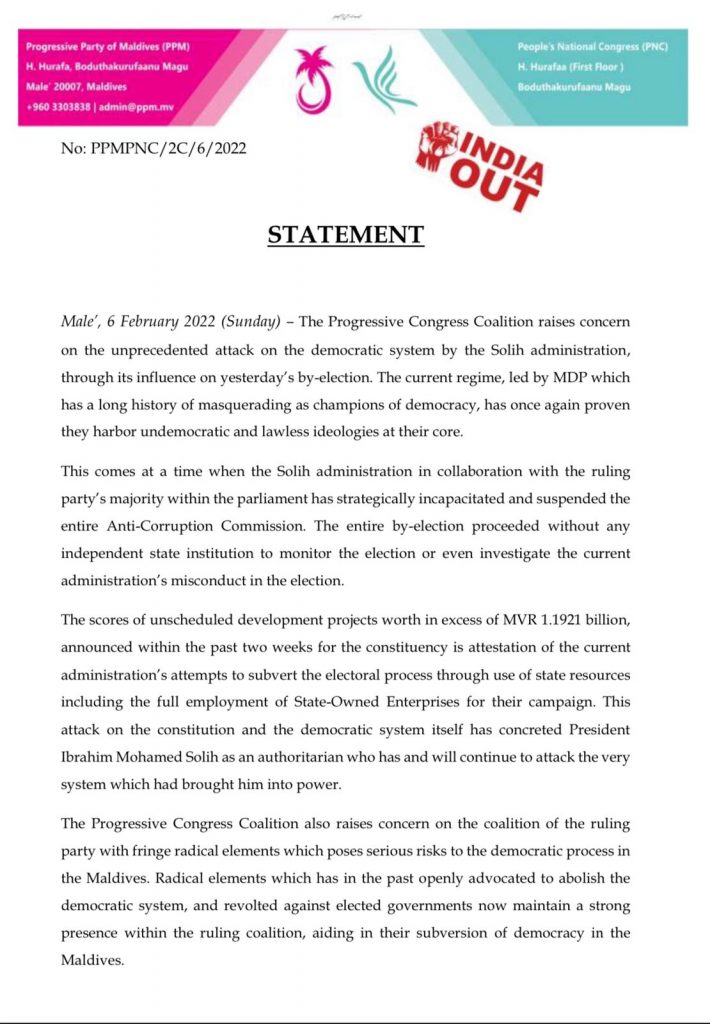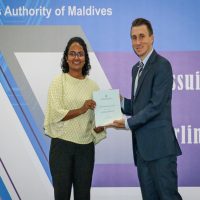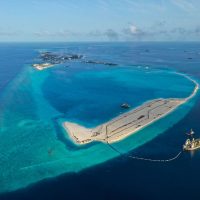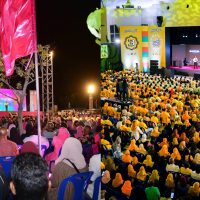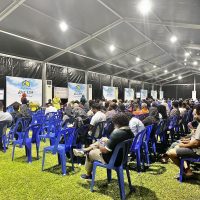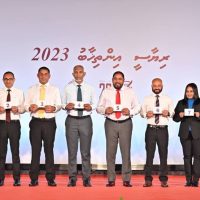1. Killing Of Illegally Imported Birds Sparks Outcry
A government ministry expressed regret and acknowledged public censure over the killing of illegally imported birds.
Photos and videos emerged after 120 parrots that arrived on five shipments were killed on Tuesday (8 February) by the plant and animal quarantine service, an import control agency under the fisheries and agriculture ministry. As outrage grew on social media, the president ordered an inquiry and lawmakers raised the incident on the parliament floor. A group of bird lovers protested in the capital.
A detailed report is being compiled and stakeholders will be consulted for a review of laws and regulations, the ministry said on Thursday (10 February), assuring action against any officials found to have been culpable.
Questions were raised about possible violations of treaty obligations as an older video of officials culling birds resurfaced.
History: In 2014, the police seized a number of illegally imported exotic animals kept as pets, including a royal python, a king snake and a red-kneed tarantula. A slow loris discovered during a drug raid was spared euthanasia after a UK centre for abused and neglected primates offered to take the endangered animal.
2. Ruling Party Moves To Outlaw ‘India Out’ Campaign
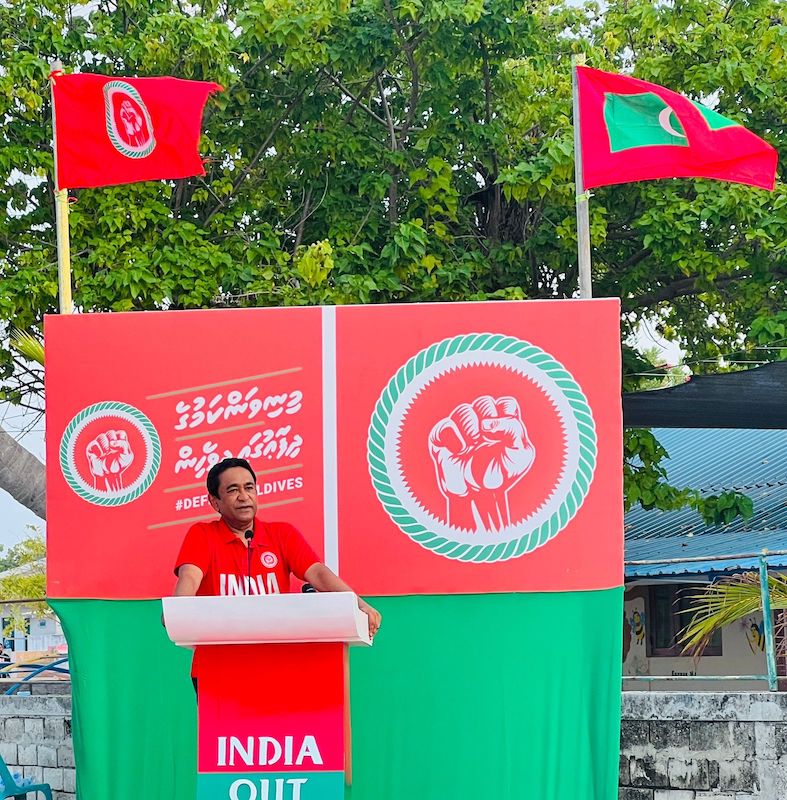
The Maldivian Democratic Party’s supermajority parliamentary group decided on Wednesday (9 February) to move legislation aimed at stopping the opposition’s ‘India Out’ campaign. The draft bill proposes hefty fines and jail terms for actions that adversely affect foreign relations, criminalising protests or political activity that targets a foreign government.
The controversial move comes after former president Abdulla Yameen intensified the campaign for the expulsion of Indian soldiers upon his release from house arrest. The opposition leader – who was freed after the Supreme Court overturned his money laundering conviction in November – contends that India is building a military presence and undermining the country’s independence, allegations dismissed as “misguided and unsubstantiated” by the MDP-led government.
Rationale: Briefing parliament’s security services committee on Wednesday, Police Commissioner Mohamed Hameed alleged that drug trafficking gangs have been funding the ‘India Out’ campaign. The leaders of 10 local gangs known to “roll millions” in their bank accounts are actively involved in organising protests and recruiting supporters. Their motive is to protect the lucrative drug trade after the police seized record hauls of heroin with help from the Indian military. Hameed dismissed the opposition’s claim that Indian soldiers are interfering in domestic affairs.
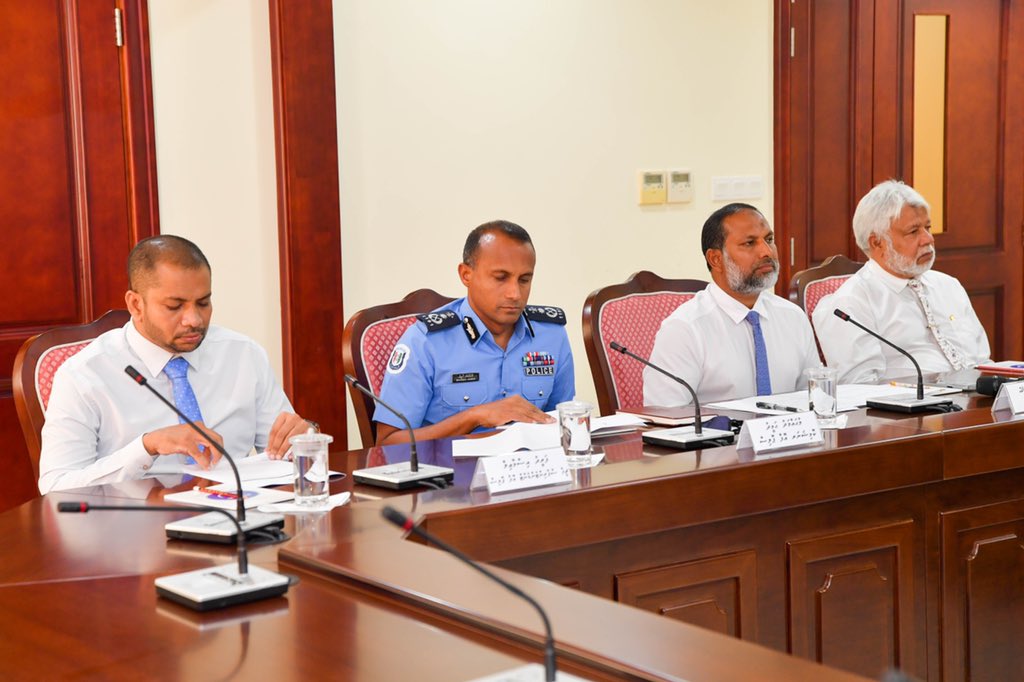
The ‘241’ committee launched an inquiry at the behest of Speaker Mohamed Nasheed to assess the harm that the opposition campaign might cause.
In late October, the oversight committee reviewed confidential agreements signed with India to establish a naval dockyard in Uthuru Thilafalhu. The committee’s chair assured the public that they do not pose a threat to national security. But the opposition alleged that Indian military personnel would be stationed at the new facility, which would be overseen by a joint India-Maldives committee.
Concerns: Transparency Maldives warned that any bill that limits freedom of expression would be “an undemocratic, unconstitutional interference to restrict a fundamental right” and urged the government to proactively disclose information on foreign policy, which could more effectively counter misinformation and disinformation. “We are also concerned by the rise in xenophobia towards foreign nationals, as widely reported in the media,” the NGO added, referring to the harassment of Indian teachers and a nurse on two islands.
Indian media: “It is ironic that a party that has ‘democratic’ as its middle name, is now preparing to bring in a law that will restrict freedom of expression. This can only hand the opposition a stick to beat the MDP with, and whip up more anti-India sentiment,” The New Indian Express warned in an editorial, urging the party to drop the “ill-advised” idea.
“In the present atmosphere, it would not be a surprise if an Indian hand is seen behind the legislation, heightening suspicions that the MDP is putting people’s rights at stake to please India. It must not be forgotten that some 30,000 Indians live and work in the Maldives. The sustained campaign is now causing concern in the Indian expatriate community.”
Anil Trigunayat, a former ambassador, told The Week magazine that China could take advantage of the anti-India campaign: “We know these rumblings are part of the game. But we certainly cannot ignore them, they could become bigger issues later.”
Opposition reaction: Leading a protest in Raa Meedhoo on Friday, Yameen hit back at the commissioner, saying that both the police and military were now solely dependent on India for intelligence. Hameed’s claim about drug traffickers was based on faulty information from Indian spy agencies, he suggested.
Yameen also alleged that the Uthuru Thilafalhu agreement allows India to “build, manage and administer” a military base with the authority to use weapons and vessels there. “The Maldives does not have the discretion to obstruct any Indian officer of a particular rank or number,” he added, reiterating his claim that India has gained “full control” over the country’s seas and resources. The Maldives enjoyed more autonomy as a British protectorate since Malé retained domestic governance and only ceded power to dictate foreign policy, he argued.
3. By-Election Win Put Down As Pyrrhic Victory For MDP
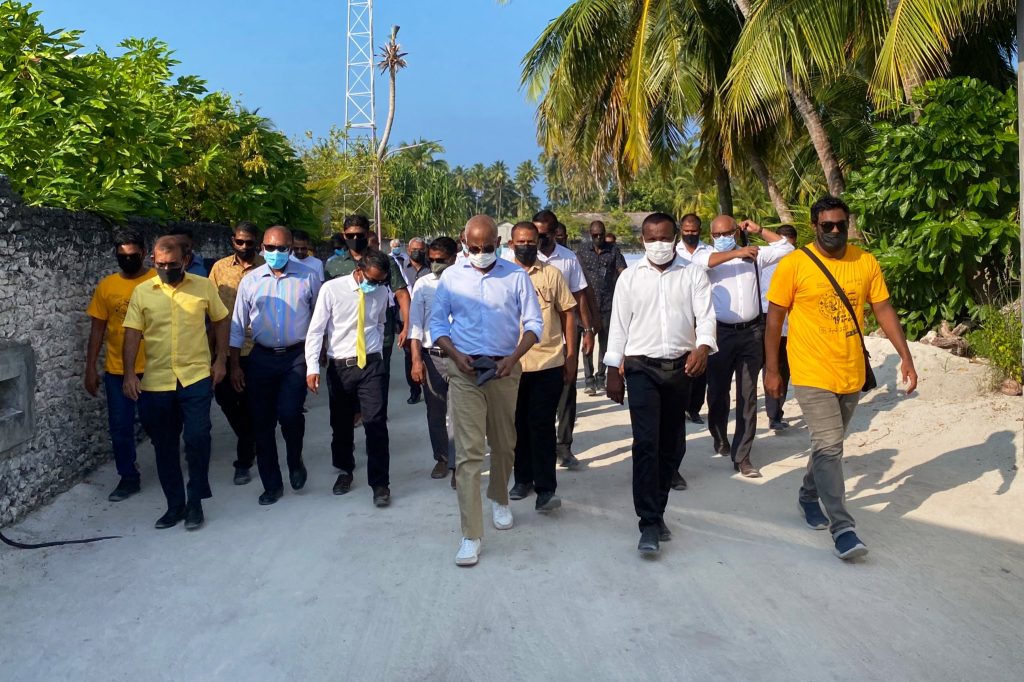
The Maldivian Democratic Party celebrated its victory in the hotly-contested Komandoo by-election on 5 February as the opposition Progressive Party of Maldives downplayed the outcome as a defeat for the government.
Both the opposition leadership as well as ministers, MPs and bosses of state-owned enterprises spent over a month canvassing support in the Komandoo constituency. MDP candidate Mohamed Rashid won with 49 percent of the vote. PPM candidate Moosa Fathuhy trailed with 40 percent as the candidate of the newly-formed Maldives National Party took 11 percent. The MDP’s margin of victory was down from 323 votes in its 2019 landslide to 240 votes on Saturday.
The result was incommensurate to the millions spent in an “abuse of state resources“, PPM leaders argued, referring to development projects hastily launched on the three islands in Shaviyani Atoll. The PPM vice president also alleged the creation of 50 government jobs and payouts from state assets to coalition party leaders Qasim Ibrahim and Sheikh Imran Abdulla in exchange for throwing their support behind the MDP candidate.
But the MDP chairman attributed the lower margin to the third party candidate. The Komandoo constituency stayed loyal to the party for the fourth consecutive election and rejected the opposition’s ‘India Out’ appeal, he told the press.
The Maldives National Party called for revisions to electoral laws to prevent undue influence from the government.
Related: An audio clip of a Fenaka Corporation official in an apparent act of intimidation was leaked days before the by-election. A man believed to be an operations head at the state utility is heard threatening staff to vote for Rashid if they want to cooperate with the company’s managing director. After the polls closed, MDP activists clamoured for his dismissal for the sake of the party’s principles and prospects in future elections. But the Fenaka MD cast doubt on the authenticity of the recording and indicated that the official would not be sacked.
Complaints: None of the 10 complaints submitted on election day was serious enough to affect the outcome, the Elections Commission said. The response from successive governments to complaints about abuse of resources has been that projects could not be halted for elections, EC president Fuwad Thowfeek told the media, suggesting that the commission’s hands were tied.
